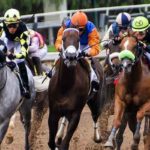The UK gambling industry experienced a rough weekend as the BBC highlighted how the self-exclusion scheme of GamStop didn’t work for the nation’s problems gamblers as expected. The ‘Five Live Investigates’ program on BBC noted on Sunday, January 13, that problem gamblers registered for the GamStop self-exclusion scheme have found a way to circumvent the exclusion. All they have to do is change minor details and register themselves with the gambling operators.
GamStop was launched in April 2018 and is an independent self-exclusion scheme used across the industry that helps in solving problem gambling issues. It provides vulnerable customers a chance to voluntarily register and block themselves from engaging with all registered online gambling operators in the UK. This ban could last for 6 months or 1 to 5 years.
In November, GamStop said that over 50,000 players in the UK had signed up for their scheme. The signed-up consumers were referred to the UK national Debtline as well as GamCare. BBC journalist Mick Turner went a step further to reveal that he had excluded himself from 20 betting shops in the Grimsby areas using MOSES- ‘Multi-Operator Self Exclusion Scheme.’ A year later, only five out of the 21 betting shops in the region refused him from using their betting and gambling services, showing problems with the retail gambling outlets as well.
Turner noted that it was disappointing to come back to the region and see that it is very easy to bet. He said that only Megabet and William Hill are taking this scheme seriously. Other bookmakers do not have any hang-ups about the people registered for self-exclusion programs. The management of Betfred also reached out to the BBC and told them that they would be launching an investigation into the case. They further committed to training their staff for handling these issues.
On the other hand, Sarah Hanratty, the chief executive of Senet Group said that the independent industry standards association was disappointed with the BBC investigation. However, she and the Senet Group both back the self-exclusion schemes, suggesting them as a directive for handling problem gambling cases in the nation. Hanratty noted that the schemes should be not be regarded as a final solution for problem gambling. Instead, it should be the first step for the vulnerable groups to take control of their issues.
Labour MP Carolyn Harris, the chairperson of the cross-party parliamentary group on UK gambling, told the BBC that she isn’t surprised by the failure of self-regulation in creating the desired safety standards. She said that the industry bodies funding these schemes are only working in their self-interest. She also noted that people who have been registered on MOSES have previously received emails telling them about gambling services in the past.










I have read your excellent post. This is a great job. I have enjoyed reading your post first time. I want to say thanks for this post. Thank you…
wow… what a great blog, this writter who wrote this article it’s realy a great blogger, this article so inspiring me to be a better person
Nice post! This is a very nice blog that I will definitively come back to more times this year! Thanks for informative post.
You have done a amazing job with you website